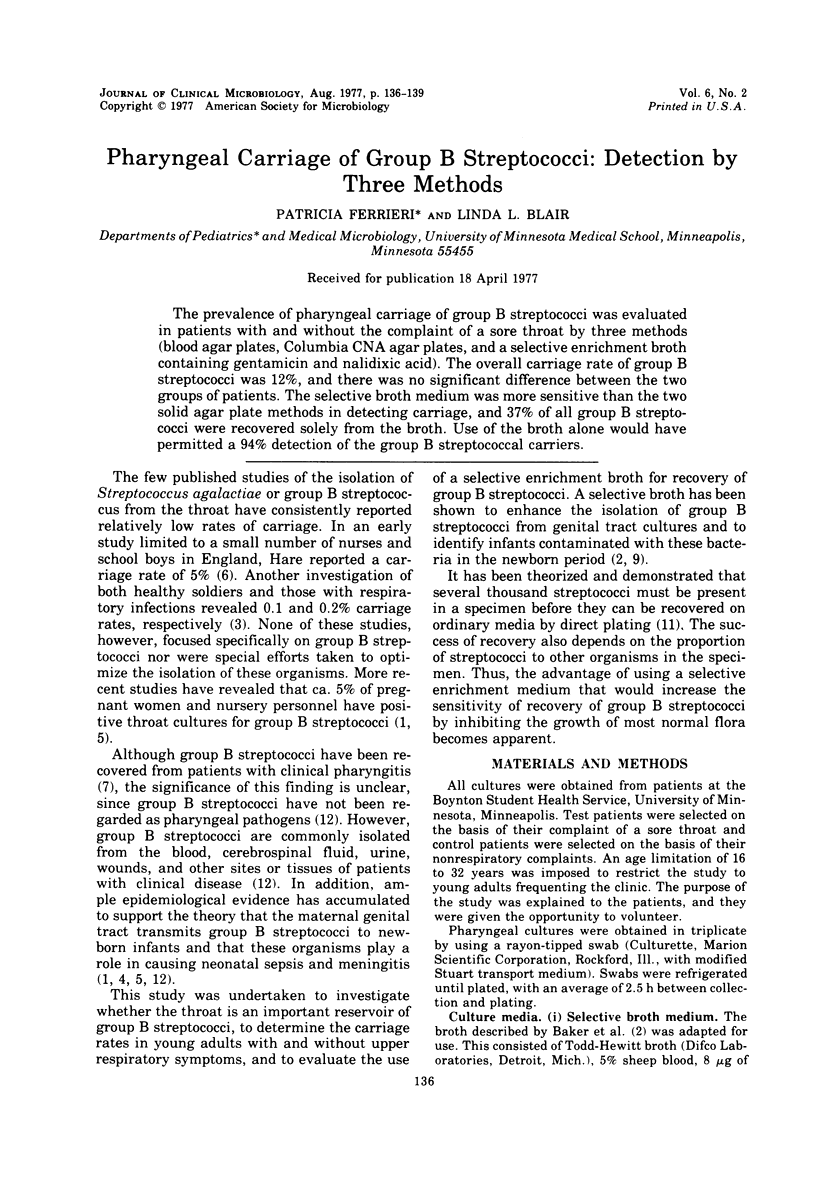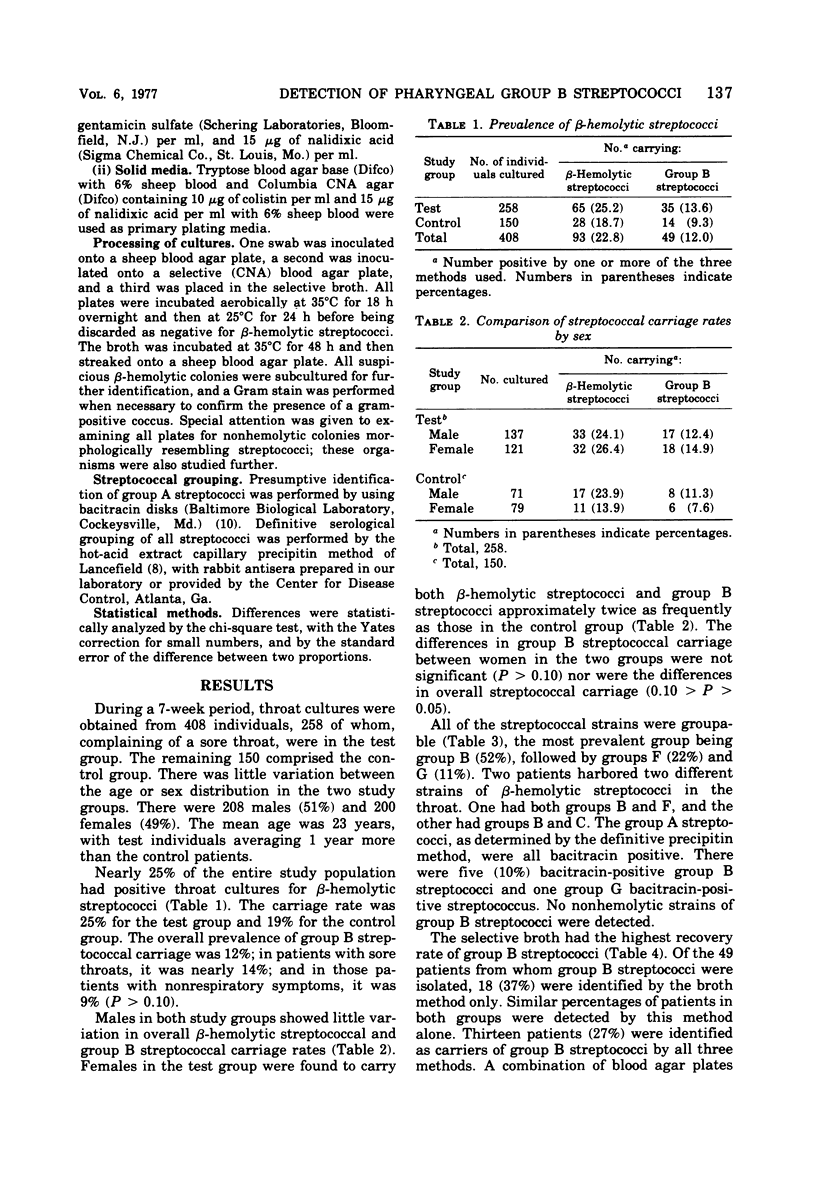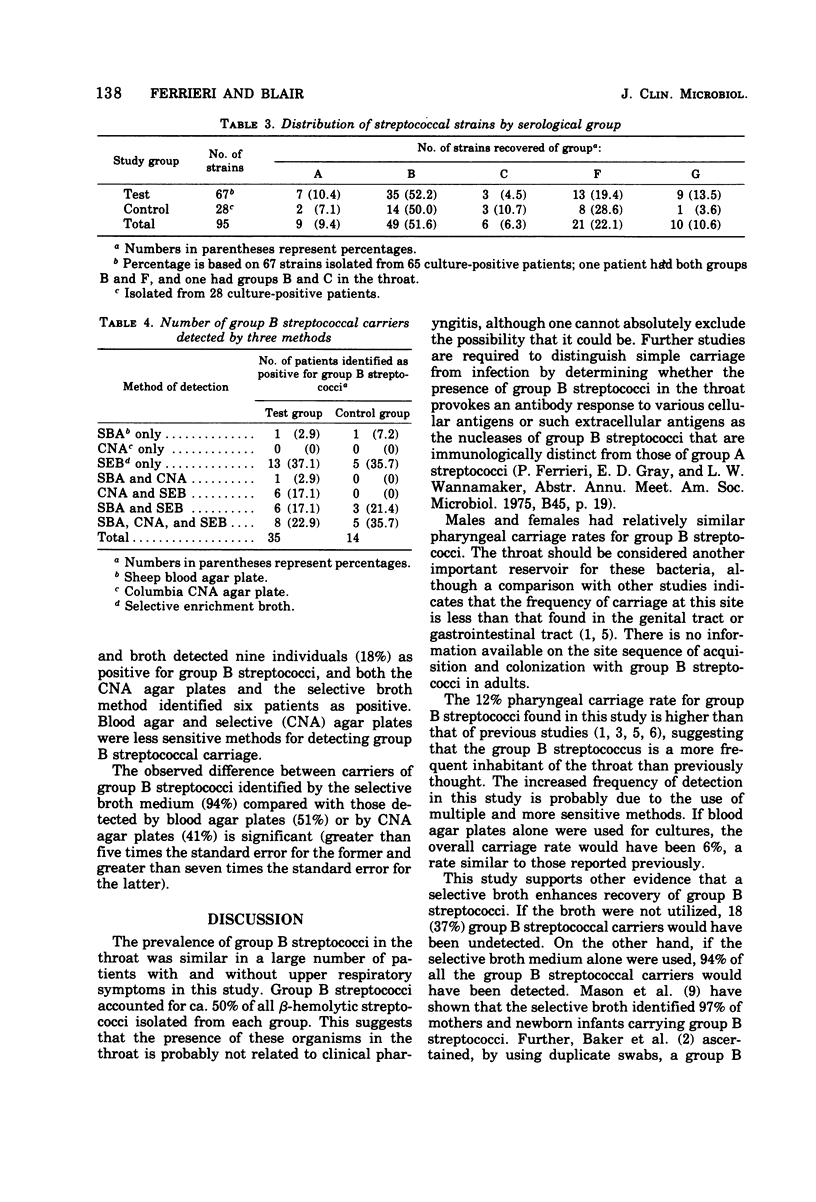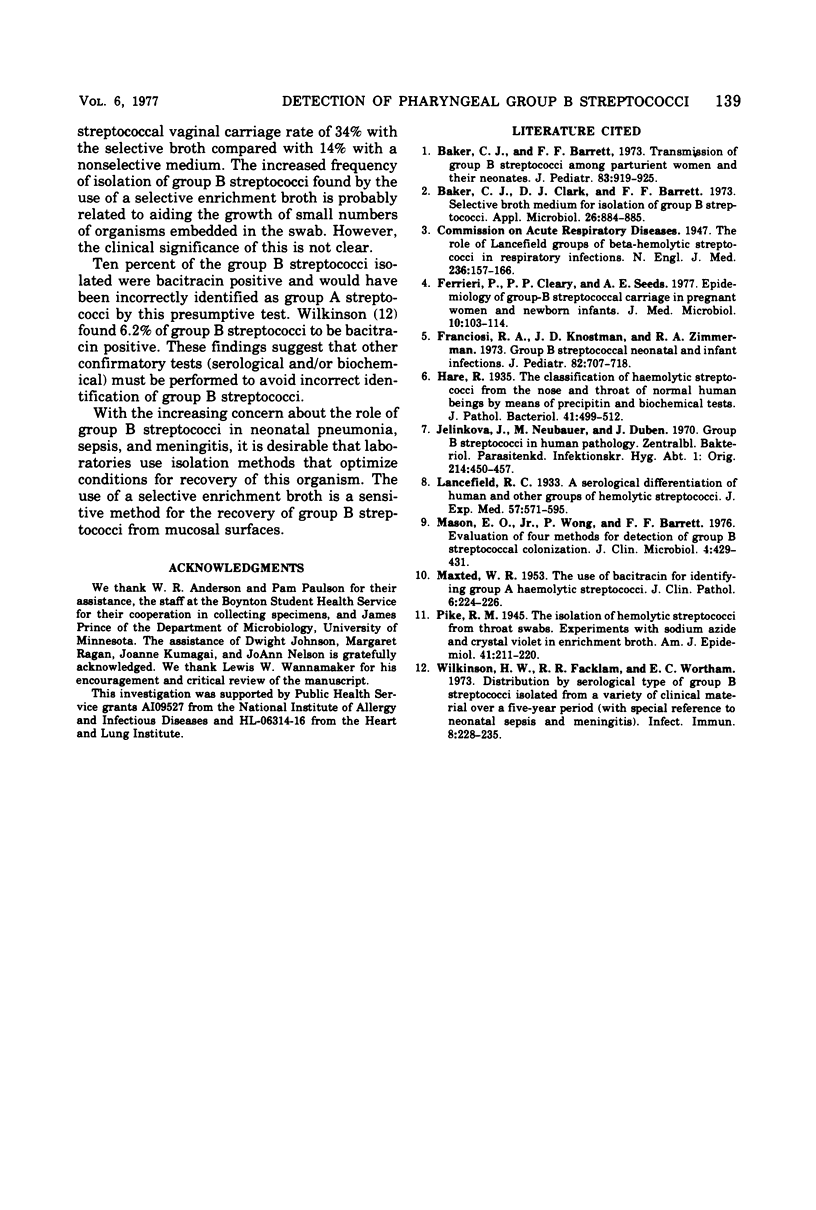Abstract
The prevalence of pharyngeal carriage of group B streptococci was evaluated in patients with and without the complaint of a sore throat by three methods (blood agar plates, Columbia CNA agar plates, and a selective enrichment broth containing gentamicin and nalidixic acid). The overall carriage rate of group B streptococci was 12%, and there was no significant difference between the two groups of patients. The selective broth medium was more sensitive than the two solid agar plate methods in detecting carriage, and 37% of all group B streptococci were recovered solely from the broth. Use of the broth alone would have permitted a 94% detection of the group B streptococcal carriers.
Full text
PDF



Selected References
These references are in PubMed. This may not be the complete list of references from this article.
- Baker C. J., Barrett F. F. Transmission of group B streptococci among parturient women and their neonates. J Pediatr. 1973 Dec;83(6):919–925. doi: 10.1016/s0022-3476(73)80524-4. [DOI] [PubMed] [Google Scholar]
- Baker C. J., Clark D. J., Barrett F. F. Selective broth medium for isolation of group B streptococci. Appl Microbiol. 1973 Dec;26(6):884–885. doi: 10.1128/am.26.6.884-885.1973. [DOI] [PMC free article] [PubMed] [Google Scholar]
- Ferrieri P., Cleary P. P., Seeds A. E. Epidemiology of group-B streptococcal carriage in pregnant women and newborn infants. J Med Microbiol. 1977 Feb;10(1):103–114. doi: 10.1099/00222615-10-1-103. [DOI] [PubMed] [Google Scholar]
- Franciosi R. A., Knostman J. D., Zimmerman R. A. Group B streptococcal neonatal and infant infections. J Pediatr. 1973 Apr;82(4):707–718. doi: 10.1016/s0022-3476(73)80604-3. [DOI] [PubMed] [Google Scholar]
- Jelínková J., Neubauer M., Duben J. Group B streptococci in human pathology. Zentralbl Bakteriol Orig. 1970;214(3):450–457. [PubMed] [Google Scholar]
- MAXTED W. R. The use of bacitracin for identifying group A haemolytic streptococci. J Clin Pathol. 1953 Aug;6(3):224–226. doi: 10.1136/jcp.6.3.224. [DOI] [PMC free article] [PubMed] [Google Scholar]
- Mason E. O., Jr, Wong P., Barrett F. F. Evaluation of four methods for detection of group B streptococcal colonization. J Clin Microbiol. 1976 Nov;4(5):429–431. doi: 10.1128/jcm.4.5.429-431.1976. [DOI] [PMC free article] [PubMed] [Google Scholar]
- Wilkinson H. W., Facklam R. R., Wortham E. C. Distribution by serological type of group B streptococci isolated from a variety of clinical material over a five-year period (with special reference to neonatal sepsis and meningitis). Infect Immun. 1973 Aug;8(2):228–235. doi: 10.1128/iai.8.2.228-235.1973. [DOI] [PMC free article] [PubMed] [Google Scholar]


